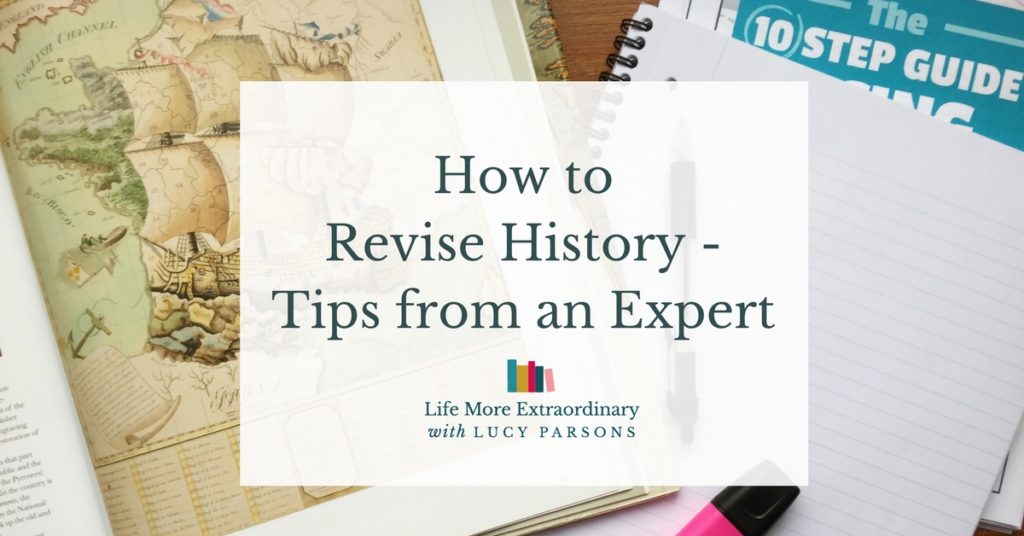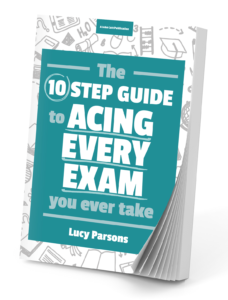How to revise history – tips from an expert

To carry on my series of posts about subject-specific revision techniques (last week was all about how to revise geography case studies) I've invited Nick Shepley, a history teacher, tutor and host of the Explaining History podcast to share his wisdom about how to dramatically improve your grades in history.
Over to Nick.
In history, when a student underperforms and produces an exam result that is far lower than their capabilities, it has rarely got anything to do with work ethic, motivation or intelligence.
Bright, hard working and disciplined students can find themselves falling prey to a critical error that seriously impacts their work and I want to try to pre-empt this mistake in the next few paragraphs.
It's not about facts…
Some students assume that if they consume enough raw data (facts, dates, events and the like) they can easily regurgitate it into an examination booklet and write enough ‘stuff’ to appease the examiner. In doing so, they ignore the fact that the examiner already knows what they know far better than at A level, they will ever know it, and isn’t actually interested in what they know but rather in what they think, argue and interpret.
In history, the examiner isn't actually interested in what they know, but rather in what they think. Share on XThe examiner is interested in how the student responds to an essay and whether they can articulate a clear line of argument supported by evidence that addresses the question set. The irony is that the way that examiners want students to discuss questions is a perfectly natural aspect of human speech and language and something that all people do effortlessly all day long.
A thought experiment to show you what I mean
Here’s a thought experiment to prove the point. Think of something you find interesting and know a lot about (preferably not based around academic study) – football, music, movies or books for example. Ask yourself ‘how far can it be argued that the movie/book/football team/band I like is really good?’ the very next thought should be a judgement and the thought after that is almost certainly going to be a ‘because’ thought (‘I liked the movie Rogue One because…’).
Do you see what you’ve done there? You’ve created a line of argument based on evidence, easy wasn’t it? Quite why this naturally occurring tendency to express a judgement based on evidence is abandoned at exam time for narrative story telling and the dumping of information on a poor, hapless examiner is still a mystery to me, but it happens every year.
To show you what an examiner experiences when they get a knowledge dump essay, find a friend and ask them to ask you the question above and then simply list every fact you can and bombard them with knowledge for a minute.
See what happens to their overall will to live. Then reverse the scenario and listen to what your friend has to say. How do you feel now? Bored? Frustrated? Totally switched off? Times that by 150 and you’re close to how an examiner feels after a fortnight of marking really bad essays. So, now we know the hell we unintentionally create through knowledge dumping, let’s think about ways to restructure revision around argument, not knowledge (this isn’t to say that precise and accurate subject knowledge isn’t important, of course it is, but it is there to support the argument, not replace it).
How to make real progress with your history revision
One technique is to get a list of past paper questions and put them around your room in large print, look at each one and as ‘what do I actually think is most likely?’. If the immediate answer is ‘I have no idea’, that’s a cue to revise knowledge and also historiography, finding out what other eminent historians have argued about a specific issue over time is one of the best ways to construct your own discussion.
If you think you might have an idea about why Henry VIII executed Thomas Cromwell or how Hitler took advantage of the Reichstag Fire, begin to mind map your theory and use post-it notes to add supporting evidence (a strong theory might have half a dozen post-its of evidence to support it).
This way argument comes first and knowledge is the thing you harness to support it(an unsupported argument is as useless as a knowledge dump). As long as argument is king you will be able to optimise your knowledge and make it work for you, not the other way round.
Nick Shepley is a history teacher and podcaster. You can access his site www.explaininghistory.com and the explaining history podcast @ explaininghistory.podhoster.com
 Other articles you might find useful:
Other articles you might find useful:
How to revise effectively for GCSE and A Levels: The Power Hour
How to perfect your exam technique to make your grades shine
If you need even more help getting your motivation, mindset and revision sorted check out my book, The Ten Step Guide to Acing Every Exam You Take. It gives you a clear step-by-step path to getting the top grades in your exams, every single time.
